Currently reading
By the Lights of a Silvery Slum: A Fairy Tale
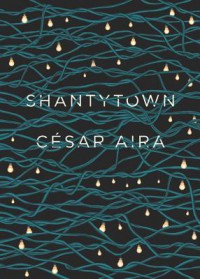
Briefly: In an interview, César Aira talks, among numerous subjects, of his preference for the fairy tale form and the combination of the surreal with the hyper-real. Shantytown captures those interests and runs with them. A gentle giant (vulnerable, simple, thoughtful), villains of varying degrees of evil (corruption), danger (murder, the drug trade, a torrential storm), a strange locale—the glowing, gemlike shantytown where so much of the story points toward; the good guys live happily ever after, the bad guys get what’s coming to them, and the really bad: “The only conclusion to be drawn from this or any other adventure was to let it be a lesson…or not. That was the sole and dubious privilege of the middle class; not to learn from experience, to go on making mistakes covered unconditionally by maternal insurance.” Oh, I forgot to mention the Evil Mother previously. Some readers may find the surreal less apparent than in other Aira novellas, while the hyper-real (man, that storm) rides roughshod over what appears to be intricate plotting with twists, turns, coincidences and luck. Aira’s characteristic metafictional approach is on display, but in a less prominent way than in previous novellas: “Jessica turned her head with a look of shock and horror, as if to say: ‘This is too much! If there’s one more twist in the plot…’”Right book at the right time for me.
La Entrevista (the Interview—in Spanish with subtitles): http://channel.louisiana.dk/video/c%C3%A9sar-aira-my-ideal-fairy-tale
A shantytown at night: 
A passage:
One of the judge’s most famous and frequently misunderstood declarations was that her only aim in life was to bequeath to the world, at the end of her brief sojourn, something it had not possessed before. It sounded like a throwaway line, the kind of thing that people trot out when they’re stuck for something to say, but it was more subtle than that. For a start, it’s not so simple to bring something new into the world: it’s a bit like bringing a rock back from the moon, except that these days the moon is really part of the world. And she wasn’t referring to a combination of pre-existing elements or a rearrangement, but to something really new, a new element, which could enter into old combinations, if anyone so desired. This was a strange ambition for a judge; justice is like a zero-sum game; you could say that its mission, the essence of what it does, is transform a situation without affecting the overall number of elements. Adding something new is more like what art does.
A song: https://www.youtube.com/watch?v=A1UFqXbD7sI
An End.
 7
7
About those cows and sheep?

“Flora inherited, however, from her father a strong determination and from her mother an attractive ankle.” (CCF, p.1) when likened to, ““The immense accretion of flesh which had descended on her in middle life like a flood of lava on a doomed city had changed her from a plump active little woman with a neatly-turned foot and ankle into something as vast and august as a natural phenomenon, ” (Edith Wharton’s The Age of Innocence and, My God, do I love that sentence) has me wondering what it might be about ankles, women’s ankles in particular, that I must have missed, and might, therefore, have contributed to the development of my peculiar ways of considering the world, and those in it, on it thereupon.
So, after all the years spent wondering if my nature had been determined by the startling realization that Peter Pan, in the first version of Peter Pan I saw, was played by Mary Martin (MARY Martin), I could now wonder about my inattention to Mary’s ankles. How could I have missed them? “The dirt which had been lying on the floor of the trap for the last twenty-five years was being kicked out into the road by a small foot with an attractive ankle” (CCF, p.20) Attentiveness meet Tentativeness (an anagram courtesy of wiktionary) Ankles, or rather the lack of them, might be the culprit, the source of things which make me me.
So, perhaps, a little something about the book. Something which previous Brief reviews would have commenced with “Briefly:”. <—is not a rage against PoMo punctuation, minimal or maximal.
So, perhaps, a little something about the book: I have to tell you, this one is just kinda magical. Does Austen do it for you? (She does me—words I never thought I’d use, when considered in the light of pervious previous comments above) Does Emily Brontë liven your heart? CCF is Austen-y. It’s Brontë-y. It’s Austen & Brontë, on the rocks, with a splash of bitters. The text has the familiar “just between us” feel—comfortable and familiar. (“Flora gave her a copy of The Higher Common Sense with a suitable message written inside the cover.” Suitable. I like that. Free indirect style. It’s the little things, right?)
I ask you, Is this 
Entirely suitable. Now, off to order Christmas at Cold Comfort Farm as I would, eventually, like to find out why the cows' body parts were occasionally lost and if the sheep died.
He Said What?
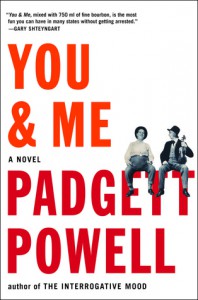
Delightful. An extraordinary sequence of conversations, presumably between the same two men, on any and every topic, seemingly pointless, frequently funny—Wienberger-lite, Markson less the trivia—inviting readers to consider insurance against having the blues, being “altogether here,” life and death, sensitivity and civilization, the Craigiator, etc.—the usual stuff.
Reading for the sake of reading during those moments where the imposition of a story would be clutter. While this may remind some readers, those “of a certain age,” of conversations, the likes of which haven’t been heard since the sixties, for others it will be that long-neglected, too-often-overlooked conversation with oneself.
To give you a real sense of the book, I’ll laboriously type in the following entry. The entire freakin’ page. Because I care.
Will we be able to cross the river and rest in the shade of the trees, is what I’m wondering.
You mean as opposed to wondering if we should, or if it will occur to us to want to do that, or —
No, I mean, precisely, Will we be able to cross a river and rest in the shade of the trees. I grant that we are too daft to have it occur to us. Perhaps you have not noticed, but the river is a concrete ditch now, usually, if it is not altogether underground, beneath roads, and the trees are an automobile dealership A man would need say today, after his arm is blown off, Let us cross the water-control canal there and repel the salesmen and crawl under the F-150s, where I wish to die.
We are living when before we should not have lived, and now we are dying where we would not have died.
That is almost epitaphic. When he should have not, he lived. Where he should have not, he died.
It will perplex the cemetery goer.
The cemetery goer, in my experience, is already perplexed. I see no harm in keeping him that way. I need some coffee, my friend.
I am in want of recreational drugs, untattered clothes, psychological counsel, carnal affection, a dog, and a child upon which to lavish trinkets and advice.
I fear for that child.
Not more than I.
What follows is merely random addenda, my own unnecessary additions to a novel already complete in/of itself:
&
Did you ever find yourself wondering who inserted the entirely unnecessary, extra s in dissolution, rendering it, the word, that much more challenging to find in a dictionary?
No, sir, I did not. I’ll consider it now, though.
Don’t bother.
No?
No.
Why not?
Does it matter?
++++++++++++++++<>++++++++++++++++++++
&
Sometimes, I think, the intellect lets us down.
Really? Bastard intellect.
Although, to its credit (intellects’s), it may be too considerate let us obsess over it.
Intellect’s the best when it comes to not remembering.
-----------------------àß -----------------------
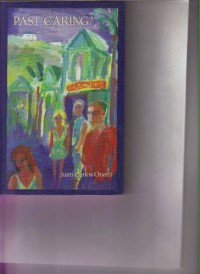
Someplace I read Bolaño writing about Onetti in the context of the Literature of Doom. My apologies, I can’t find that quote now, and I’m too lazy to pursue it. Suffice it to say, Onetti is or is not representative of that Literature. Past Caring? would seem to be well-placed within that context. The lone Bolaño quote I was able to find with regard to Onetti is in regard to Spanish language writers and humor: “Few writers follow the same course as Borges and Bioy. Cortazar, of course, but not Arlt, who like Onetti, opts for the parched and silent abyss.”
Boy, howdy.
In Past Caring? the narrator, Carr, provides a series of journal entries chronicling life after separation from his wife and relocation to the remote Santamaría where he pursues a life on the fringes of the world of smuggling. Having dropped his folder of journal entries, and himself too lazy to put them back in order, readers are presented with a sequence that may have lasted two and half years, or so, or much longer. Who knows?
An epigraph begins the novel:
Anyone trying to put a hidden meaning to this story will be taken to cour; anyone trying to extract a more message will be exiled; anyone trying to discover a semblance of a plot will be executed.
By order of the author
Issued by V.G., Commanding Officer
Not for everyone, but I liked it, even though it seems to have taken forever to finish.
 4
4

Because things so seldomly work out as planned, at least as planned by me, I purchased this title thinking I’d found a new Javier Marías story and would scoop all fellow Marías fans in its reading. A coup. A feather in my cap. Whoohoo! Alas, not only was the story not a new one, it was one I’d read a couple years back. These things happen—to me.
In Joy Williams’ Baba Iaga and the Pelican Child, the crotchety old witch startles readers in a tale with a PoMo ending (wait, it has an ending?) if one has done his or her homework by becoming familiar with East European folklore, at the most, or if one has read the Wikipedia entry ( http://en.wikipedia.org/wiki/Baba_Yaga ), at the very least.
Javier Marías’ The Resignation Letter of Señor de Santiesteban is the story an English school teacher who spends a year haunted, and insulted, by a ghost whose identity is in question, before exacting his revenge. Even better on rereading when it didn’t compete with other Marías stories inWhile the Women Are Sleeping. A chilling tale of one-upmanship.
Roberto Ransom’s Three Figures and a Dog is a wondrous story of Art, perhaps haunted Art, and may answer the question of: Can an artist see something in a work of art that others do not? I’m unable to locate anything by Ransom which may have included this story, and it’s a shame as I’m very interested in reading more. In the short term, I’m willing to give A Tale of Two Lions: A Novel a go, even with its relatively low ratings. Meanwhile, you may find this of interest: http://www.youtube.com/watch?v=1SMMXu3Tu4Q Go ahead and watch it, for cryin’ out loud; it’s quite brief and will show you EXACTLY what to expect from the story (sorta).
Ben Stroud’s Byzantium, not surprisingly included in Byzantium: Stories tells the story of Eusebios, a man with a withered hand who is sent on a mission to castrate a monk whom the Emperor fears will usurp his throne—haunted by the miraculous. Very well done.
Patrick deWitt (author of The Sisters Brothers) provides a Flannery O’Connor-like story of treachery and deceit with his The Bastard, in which, the title character dupes an old widowed farmer, his daughter, and the entire town they call home. Fun.
Five solid stories, capably told, each by authors good at what they do. This collection suggests good things for other volumes in the Electric Literature series.
Enough with the Questions?

Would one ever read a book-length sequence of questions? Would you? Would you read David Markson if he had been written by someone else, say, Eliot Weinberger? Since this is not a novel, would you read it anyway? Would you remind yourself to slow down while reading? If you did remind yourself, would you, in fact, slow down? Are you content with Wow! moments? With funny moments? With pensive (no, no, no, not pensky moments)? If you walked to the edge of the forest and stood with your back to it, would you hear the tree fall? Have you heard the sound of a hand? If this review, such as it is, already seems too long, would you prefer The Imperative Mood, and read that if told to?
If you could have a famous writer, dead or alive, write an obituary for you and really puff you up to have been something you weren’t, perhaps, or otherwise take liberties with your memory, what writer would you choose?
Would your life have been different had your given name been Padgett? Is Padgett a unisexual name or an asexual name? Have you had sex today? Would you/will you if you have the time? If not having enough time is anything like not having enough water, aren’t they ultimately the same things?
So why am I still writing in the interrogative? Would you believe me if I told you that this is so, so worth the time? That you might enjoy it? What if I told you it was a stanza-less prose poem? What if I told you the question in and of the subtitle is answered? Would one
Déjà vu, or Oops, I’ve Reblogged It Again
I think I’ve seen that before. Wait. I think I’ve seen that several times before. No, wait. I’ve seen that so many times, I’m now watching for Bill Murray while shuddering to the fingernails-ona-chalkboard, braying voice of Andie McDowell.
Might anyone else think the ability to Block reblogs would be a site enhancement?*
*For the sake of clarity, I'm not suggesting Reblogging be prohibited, rather I'm suggesting the ability to Filter-out those reblogged posts would spare some of us much scrolling, frustration, and the waste of cyber ink.

Briefly: Three thoughts on this one:
1) Most of the friends who have read this have given it 4, if not 5, stars. I’m always pleased when friends have enjoyed a text. For me, though, this falls solidly into the Ugh category, and I’m reminded of all the Whys I, generically, dislike poetry and Why I absolutely like reading some poets.
2) Once upon a long, long time ago (1964), there was an episode, a scandalous episode of Dr. Kildare featuring a very young, very healthy Yvette Mimieux writhing in a bikini on a gurney. I never understood what all the fuss was about. I writhed through this one, too, but not in a good way.
3) The kindle version I read did not maintain the poet's stanzas, but rather presented each poem in paragraphs while maintaining the individual line capitalization—kinda screws with the poet’s ‘fearful symmetry.’
 5
5
No Country for Old Tricksters, or Cheetahs? Really? When there are perfectly good pumas at hand

Who hasn't picked up a text by Cormac McCarthy expecting a fun-filled laugh-fest, fit for the entire family? Yes. A real crowd pleaser that Cormac. We've all been there. So you can imagine, I was slightly bummed out when two of the protagonists kept a pair of cheetahs, (Cheetahs!) I think he was toying with me.
More importantly, this is the first McCarthy I can remember with a sex scene, really, a sex scene that doesn't involve watermelons. If you want to know more about that scene, you'll have to...
Sometimes Banned Books Suck, or Thar She Blew!

<!--?xml:namespace prefix = "o" ns = "urn:schemas-microsoft-com:office:office" /-->
James Hanley's Boy was banned after it was published in 1931—for its obscenity. Perfect! And the perfect time to read it.<!--?xml:namespace prefix = "o" ns = "urn:schemas-microsoft-com:office:office" /-->
This is one I expected to like much more than I did. Begun as Banned Books Week approached and coupled with my own agitation by an ongoing Banned Reviews situation, I found this one lacking— in its ability to create any sort of compassion for its protagonist and/or to overcome my anxiety over what’s happening at a once highly valued review community where I was happy to participate.
A young boy, pulled out of school by parents who wanted him to work and contribute to their own well-being, when all he wanted was an education and the chance for a better life (in his case, a pair of shoes like his teacher’s) stows away on a merchant ship looking for an opportunity to succeed. The unwanted sexual advances of crewmates, the boy’s slavish treatment combined with an oppressive loneliness, and unfortunate experiences with an equally young, exotic hooker could have developed into something more than a mediocre adventure.
Hanley’s over-reliance on iteration undermines a protagonist, for whom, sympathy should develop but never does leaving the protagonist a petulant neff (Hanley’s word). Clumsy language and heavy naval jargon detract from a straightforward narrative, and a virtually hidden glossary (really) provides little help.
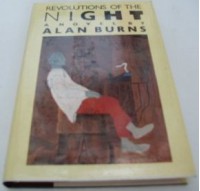
Everyone gets the depression he deserves.
Or, perhaps, the novel he or she deserves.
Briefly: Absurdist, with surreal attention to detail, or Surreal, with absurdist attention to detail, or subsurdist—yeah, that’s it; I’m sticking with that.
While reading, I kept thinking this would make a spectacular graphic novel, a form for which I have little interest, because this is an image-rich novella. For a real review, I suggest Nate's, and be sure to check out the artwork he brings to our attention—they are very much images from RotN.
Wrong book at the wrong time with way too little knowledge of artwork Burns uses with abandon.

Updated.
Even better after the second reading.
The world is of tantalic inspiration.
So begins Macedonio Fernandez’s fantastic story Tantalia. Zambra makes reference to it. I encourage readers to get a copy and read it—bizarre and an incredible complement to this novella (complement in its older sense of something which completes). The He and She of Tantalia could easily be Julio and Emilia of this story. Gazmuri, an author/character in this novella, could easily be Fernandez, if one is inclined. The stories fit together like complimentary angles. Fernandez’s story informs this one. Zambra’s story attaches as if integral. Where MF baffles, AZ seems to illuminate, entertain, bedazzle, and bedazzle with a healthy dose of humor which wasn’t as apparent (if at all) on the first read). Get them both. Read them both. 4 pages from MF, 83 from AZ—quickly accomplished and so well worth the time. I’m tempted to revise my rating, but I’m retaining it as my initial feeling. Do yourself a favor, read them both.
Tantalia may be found in The Book of Fantasy which the translator of Zambra’s novella translates literally as Anthology of Fantastic Literature—don’t waste time hunting around for that title.
<<<<<<<<<<<<<<<>>>>>>>>>>>>>>>>>>
Original review:
Isn’t it just the way—your GR friends start reading whoppers, so what do you do, you start chewing through some of the slimmest novellas you own. Well, that might not be what you do, but it seems to be what I’m doing. Going against the grain. So here I am. My Read list well ahead of where I need to be for meeting my year’s goal. Building a cushion against the time I start my own next whopper. And even that, I screw up (I recently got an email about a new group, which I was checking out on my phone [man, I hate having a phone smarter than I am] so I clicked Join—looking forward to reading Infinite Jest with the folks I expected to join or had already joined, only to then realize I’d joined a group to read Gravity’s Rainbow—Gravity’s Freakin’ Rainbow! It’s cool; I need to get it moved from TBR to Read—all’s good). But, and here’s the thing I like, the randomness of what’s next for me—that is, the randomness of what I read and when I read it. So, a long-winded approach to a review of Bonsai.
I recently read and loved The Private Lives of Trees because the author’s Bonsai was constantly being recommended by this site and amazon—all well and good that, except that Bonsai was Out of Print or Out of Stock or something, and the only copies available were used and $30 a throw. Ya gotta love suggestions like that. So, now I was determined: Get Bonsai and read it. Lo! Behold! It’s being reissued in a movie tie-in, less expensive edition—all’s right with the world! I started it almost immediately upon its arrival and have now read it twice.
Bonsai begins with what appears as the beginning of a framed story—it leaves no doubt where the story will go, only how it will get there. Then the line:
In the story of Emilia and Julio, in any case, there are more omissions than lies, and fewer omissions than truths of the kind that are called absolute and that tend to be uncomfortable.
Followed on the next page with the passage:
The relationship between Emilia and Julio was riddled with truths, with intimate revelations that rapidly established a complicity that they wanted to understand as definitive. This, then, is a light story that turns heavy. This is the story of two students who are enthusiasts of truth, of scattering sentences that seem true, of smoking eternal cigarettes, and of closing themselves into the intense complacency of those who think they are better, purer than others, than that immense and contemptible group known as the others.
Ultimately, the novella is about fiction, lies, reading, truth, characters who do and don’t matter, overlapping stories that may or may not be mentioned in one text or another, Literature, and love’s beginnings and endings. All shoved into the briefest of 83 pages. I liked this one. A lot. It gets 4 rather than 5 stars because I preferred The Private Lives of Trees. Totally arbitrary. Absurdist, like the novel. Worth spending the better part of a psychiatrist’s hour with.
 1
1

If Nijinski was mad, was rose madder?
Briefly, because I do not care to dissuade anyone from reading this one, but I’m also not inclined to recommend it either—at least not for most readers.
It seems, to me, obvious that this novel suggests the beginnings of what will become Markson’s pared down style which, again for me, made the tetralogy and Wittgenstein’s Mistress so endearing. That is not to say that it resembles these in form or tone at all, rather the combination of limitless references to artists, philosophers, artworks, religious personages and concepts, along with stunning brevity in the dialogue and stream of consciousness passages made frustrating by an incredible amount of aposiopesis, marked not with marks of ellipses, but rather the terminal period. Terminal being all sorts of operative.
I had to wonder if this was Markson’s ‘Mexico novel’ in the same way Lowry has his (Under the Volcano)—Lowry is one of those to whom this is dedicated. Reading this, however, and as I can’t speak to UtV, yet, I was put more in mind of Pedro Paramo, especially after having completed half the novel, I decided to find out just where in Mexico Mictlán is. Boy howdy, a totally different slant on this novel at that point (as it’s rather a spoiler, you can look it up yourself should you be so inclined).
So, one for the Markson Completists—challenging, dark, frustrating. To be honest, I’m more inclined to go backwards toward Epitaph for a Tramp and Epitaph for a Dead Beat, than to make the leap forward to Springer’s Progress. We’ll see.
Quotes from this one? I got next to nothing, although friends of alliteration might just like:
(one of countless examples of terminal aposiopesis).When fetal Fern was few weeks formed.

Okay, in a nutshell, here it is: this book is perfect —
Perfect for:
1) when you have 5-10 minutes while waiting to see the doctor, dentist, barber, beautician, whoever the heck you might end up waiting to see. One could do worse than reading this one.
2) just before going to sleep and you want to read something, without commitment or the investment of much thought. Very good for that, indeed.
3) Brushing up on a subject of interest to you before seeking out more exhaustive sources of information (see below).
4) * (I will not, NOT, I tell you, sully the integrity of this mini-review by the inclusion of item 4 from the list on the list. See the entry buried below, well below, where it belongs.
There is an interesting entry on Literary Inundation and its remedies: genre-reading, dictatorial reading lists, and the the long tail approach advocated by Christopher Anderson (essentially, book-mapping). To those, I would add Goodreads, primarily as a good resource for finding great books to read next. Notice I said “good resource for finding great books” and not “great” resource for finding “good” books. Good-great, not great-good. (attention to detail, ya’all)
A better choice, and I’ve said this many times, is Harmon & Holdman’s A Handbook to Literature—even at a couple times the price, it’s hundreds of times a greater resource.
Now, that pesky item 4: If you are one of those people who, for whatever reason, feel the need, urgent or otherwise, to maintain a library within the confines of your…uh, let’s just say one of the most private rooms in your quarters, then get that stack of reading material out of there post-haste, get thee to a reputable coffee shop and order a grande-quad shot, soy, no-whip mocha, and that problem will take care of itself. (Especially if you’re one of those people who tongue-moisten a finger before turning a page. Ewww!) Oh, and for the sake of consistency, this is perfect for ebook readers who don't care to see another tree's death go toward such things.

Briefly, perhaps my briefest yet: Log of the S.S. the Mrs. Unguentine—lite.
***^^^***
What? You want a real review? Try this one.
***^^^****
Still reading? Cheeses! I know what you want to know. No doubt in my mind. You want to know if if I’m padding my Read list to get current on my 2013 goal. Man, the audacity, some people think they’re entitled to know everything. So, with regard to the matter of catching up to my goal, all I will tell you is
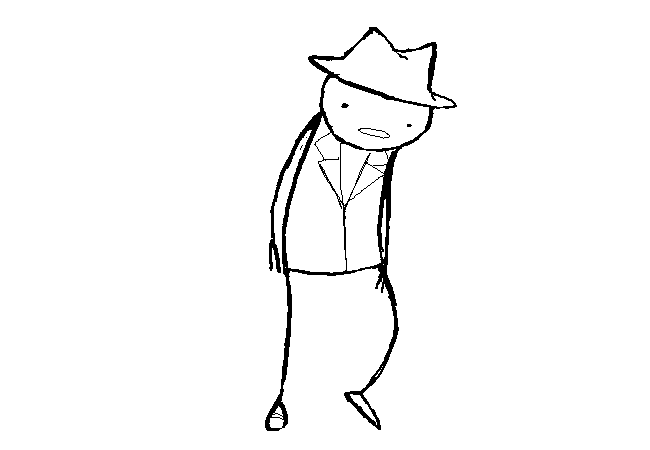

First things first—the book, the physical book, has some problems: what appears, to me, as occasionally awkward translation and very unfortunate copy-editing. I wanted to get that off my chest each of those problems bugged me right from the beginning. I soldiered on, but the experience of reading was tainted. ‘Nuff said.
It’s almost impossible to say much about Patriotism without spoilers. If you’ve read the title description you know what those are and shouldn’t be surprised by anything that follows. Just in case: This review contains spoilers!
Patriotism, for me, is one of those confused and confusing concepts that many equate simply with ‘love of country’ (which would, I suppose, be fine) but often takes the form of an ugly nationalism, which in my opinion, has never been merited—by any country, at any time. While it’s one thing to stand misty-eyed, with hand over heart, as the flag passes by, remembering (or fantasizing about) what one regards as the best of one’s country’s finest attributes and history, it’s quite another thing to ignore the attributes and history which don’t adhere to one’s mythology. I must make the distinction in my mind and explicitly, as it seems too few do and the one trait frequently poses as the other. Patriotism is that ‘virtue’ we have (and those cute foreigners with whom we get along), while ‘nationalism’ is the domain of the evil. It equates, roughly, with the notion that only other people’s religions are superstitions.
For the sake of clarity, I do not regard Patriotism as a virtue, and that had something to do with putting off the reading of this novella as the title created approach/avoidance conflict within me. Moving on.
The novella presents the story of the final two days in the lives of Shinji and Reiko Takeyama. Their love for each other, and respect for each other, and devotion to each other seem absolute, honorable, moving. For me, it is within that context the story works best. Shinji, however, is not a character with whom everyone will be able to identify—especially, given that his decision to commit suicide is not due to personal disgrace, but rather because friends had committed mutiny against his country. He knew he wouldn’t be able to fight them, they were his friends, and he knew he was opposed to their rebellion, so the solution to his dilemma is…suicide (?). I know, I know, time and place—time, place, and tradition—still. That was, for me, the least compelling aspect of the novella. On the other hand, Reiko— Any sensitive (sympathetic) reading demands a qualified appreciation of Reiko. No, she’s not a feminist hero. Her motivation is honorable—in spite of the superstition (accompanying her husband on his next adventure). Their love for each other is believable. Can’t ask for more than that.Four stars—because I can’t do more, and won’t do fewer. Grizzly. Probably not best read while depressed.








 3
3